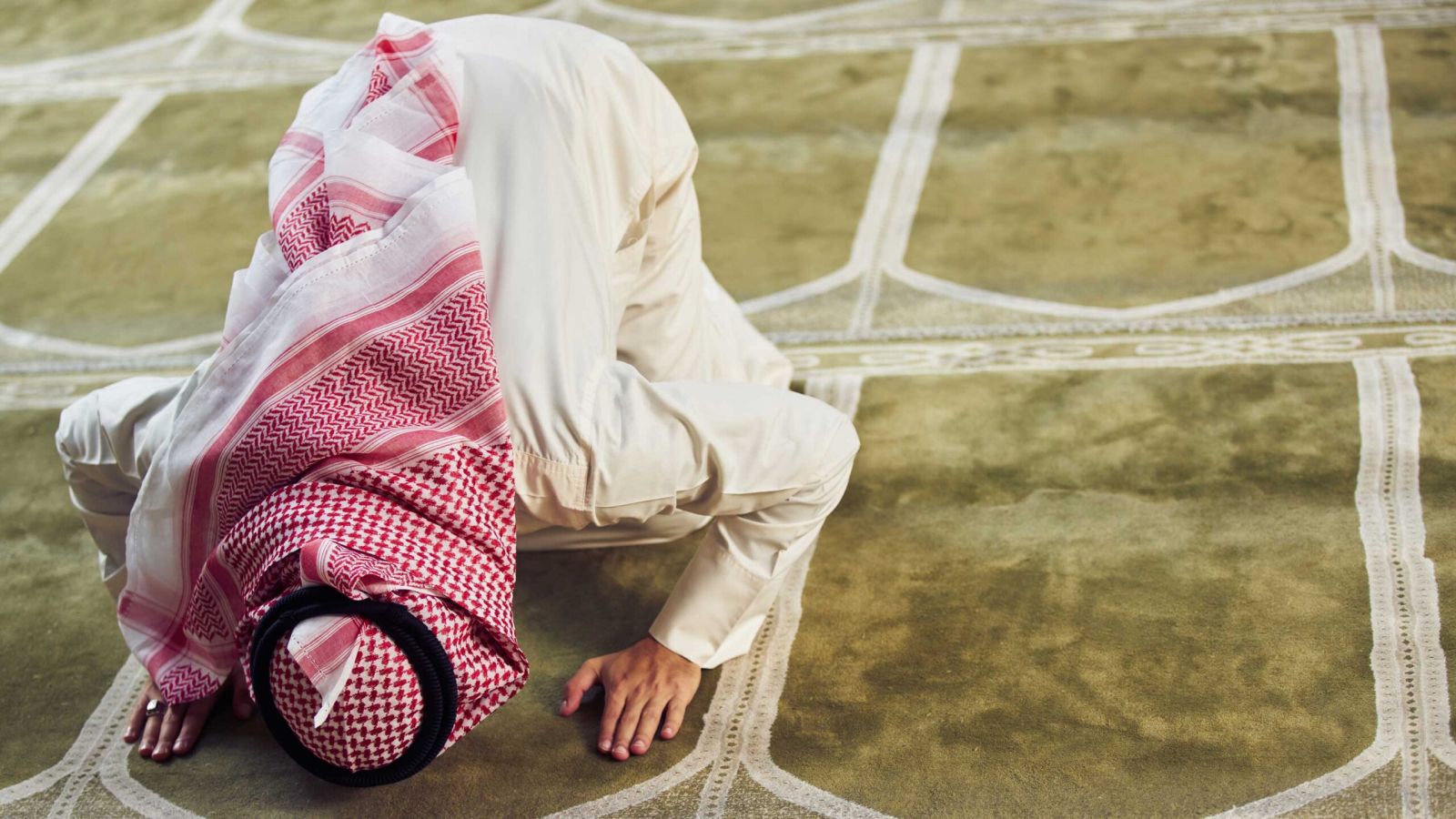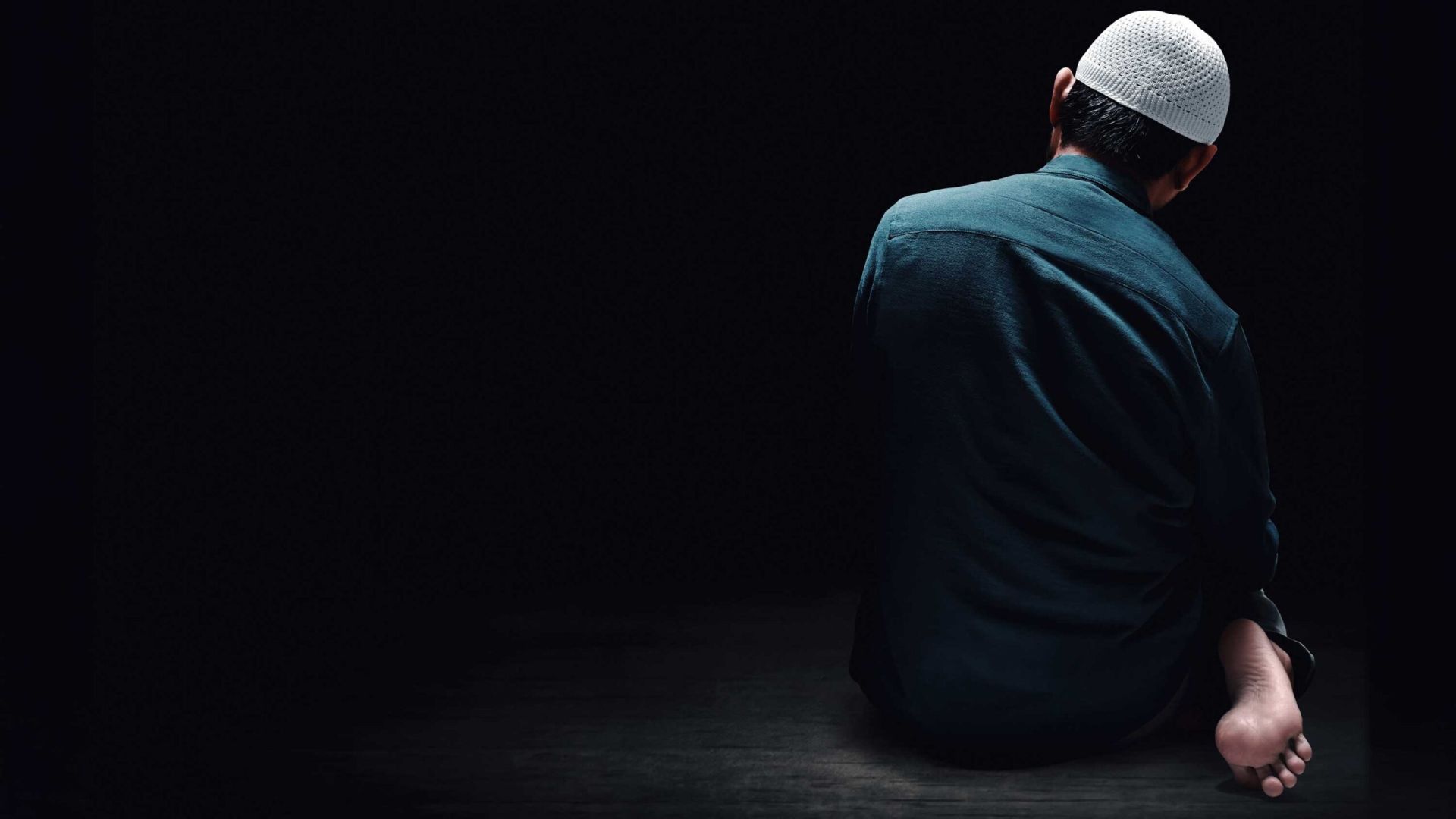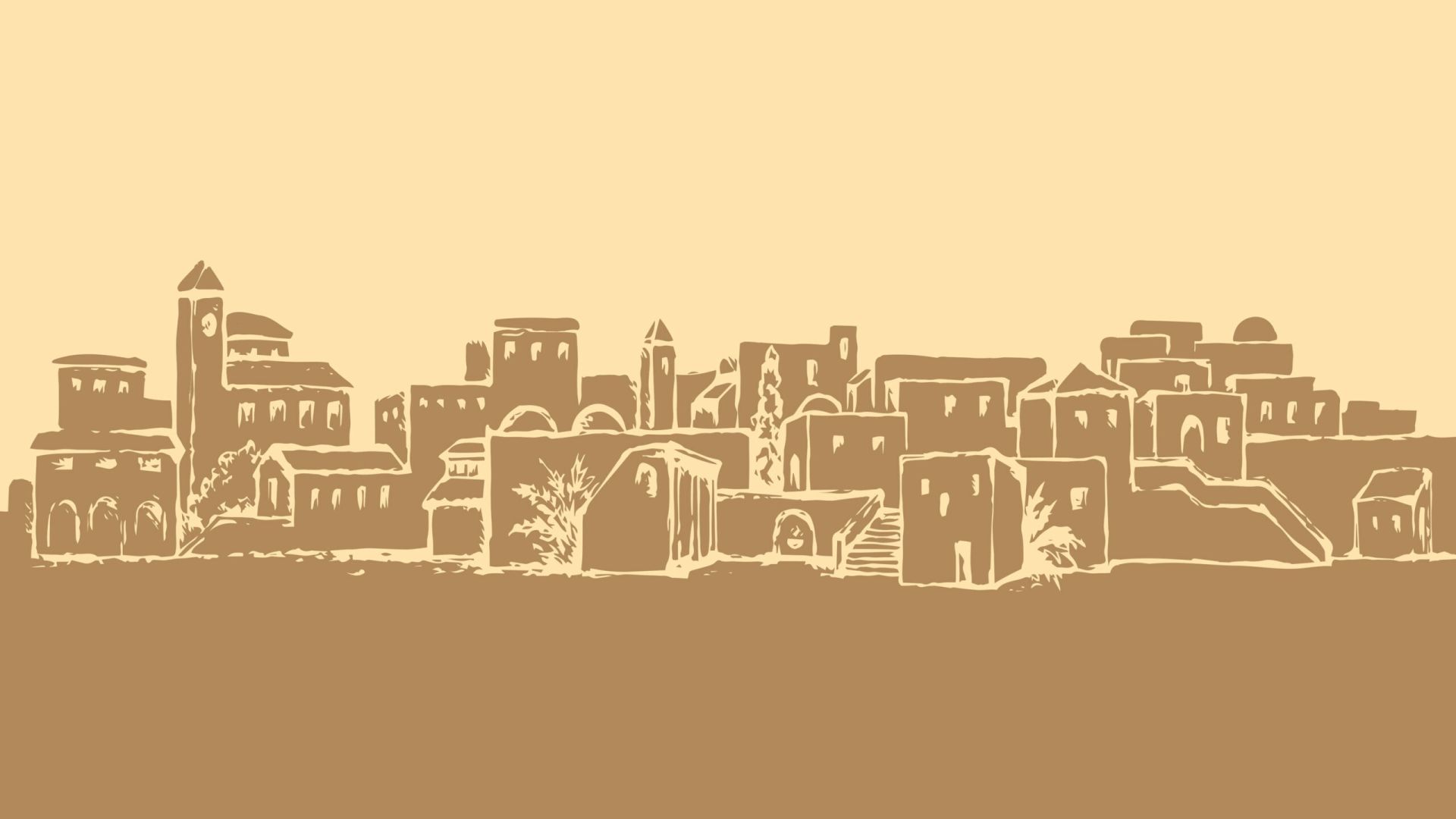Rulings on Giving Salams Loudly When Entering the Masjid
Imām Muḥamamad ibn Ṣāliḥ al-ʿUthaymīn, Imām Muḥammad Nāṣir al-Dīn al-Albānī
Rulings on Giving Salams Loudly When Entering the Masjid
Imām Muḥamamad ibn Ṣāliḥ al-ʿUthaymīn, Imām Muḥammad Nāṣir al-Dīn al-Albānī


Greeting Specific Individuals with the Salām Whilst They Pray and Avoidance of a General Salām
Imām Muḥamamad ibn Ṣāliḥ al-ʿUthaymīn was asked:
[Q]: We once prayed the congregational ṣalāh in a masjid wherein every time a person would enter the muṣallá, he would say the salām loudly to everyone. Upon hearing this, those performing the congregatory ṣalāh would all point. This occurred thrice or four times over the duration of the ṣalāh.
[A]: It is better for them to avoid such practices altogether. If someone enters the masjid seeking a specific person and finds him praying, then he may either choose to give that person the salām or not. As for the circumstance described, wherein every person that enters offers a general salām to everyone in the masjid, this was never related to be among the practices of the companions. It is, therefore, a mistake as it causes a person to be distracted away from the ṣalāh they are performing. The person praying may even, as a reflex, unintentionally reply saying “waʿalaykum al-Salām” while he is praying. For this reason, people should be forbidden from saying a general salām to everyone whenever they enter the muṣallá.
If a person enters seeking a specific individual and finds him praying, then he may say the salām to that person only and this praying person may answer by simply pointing with his hand.1 This pointing is simply an indication that the praying person has heard the greeting and is a form of replying to the salām. However, he should not exaggerate this pointing of his hand as many people do, raising it for example to the level of his ears. Rather, he may raise his hand slightly, sufficient enough for the greeter to realise that his greeting is heard. If this greeter remains in the masjid, and the person concludes his ṣalāh, he may then reply to the greeting with words and speak to him. Otherwise, if the person has chosen to leave, then this pointing of the hand will suffice as a reply to the greeting.2
[Q]: In this instance, there were people pointing with their hand every time they heard the salām. Is this pointing not considered a form of unnecessary, playful movement ascribed to the ṣalah?
[A]: No, but their practice is unnecessary. This is because the person giving salām in this situation is not deserving of a response anyway—not in the form of pointing upwards, downwards, to the right or the left.3
Giving a General Salām to Everyone Performing Ṣalāh Is an Abandoned Sunnah
Imām Muḥammad Nāṣir al-Dīn al-Albānī said:
As for extending a greeting to those who are performing ṣalāh, it is considered a Sunnah that has been abandoned—both in terms of implementation and awareness. As such, I wished to remind everyone regarding this, as reminders benefit the believers.
The evidence to support this is the authentically confirmed ḥadīth in which the Prophet (صلى الله عليه وسلم) visited the Anṣār in their masjid (Qubāʾ). During this visit, while he (صلى الله عليه وسلم) was performing ṣalāh, men from the Anṣār would enter the masjid and greet him with the salām to which he would reply by pointing with his hand. One of the narrators of the ḥadīth named Jaʿfar ibn Barqān asked the companion: “How could he reply while he was performing ṣalāh?” He informed him that he (صلى الله عليه وسلم) did so by pointing the palm of the hand to the ground and the back of the hand upwards. He (صلى الله عليه وسلم) made this gesture every time one of the Anṣār would greet him with the salām. This is considered the methodology of answering the salām for one who is engaged in ṣalāh, as the person performing ṣalāh is unable to answer the one greeting him with words because his tongue is busy with the recitation of the Qurʾān or whatever remembrance is appropriate to the pillar of ṣalāh he is performing.
In the beginning of Islām, it was permissible for the person performing ṣalāh to reply to the ṣalām with words as evidenced by the ḥadīth of Ibn Masʾūd (رضي الله عنه) in which he greeted the Prophet (صلى الله عليه وسلم) with the salām while he was praying and did not receive an answer despite being accustomed to receiving a reply from him while performing ṣalāh, but on this occasion the Prophet (صلى الله عليه وسلم) only inclined his head towards him. Ibn Masʿūd (رضي الله عنه) said: “I was overcome by that which is near and far”, that is, he began to contemplate everything he had done both near and far in time and space, as if saying to himself: ‘Do you not see! What crime have you perpetrated and how have you opposed this sharīʾah? For what else would necessitate the Prophet (صلى الله عليه وسلم) refusing to reply to your salām?’ Then he was provided with the answer when the Prophet (صلى الله عليه وسلم) finally concluded his ṣalāh with the taslīm. He (صلى الله عليه وسلم) told him: “Indeed, Allāh brings forth newly invented affairs in His matter (this religion) as He wills and indeed among these newly invented matters is that speech is unbefitting of ṣalāh”. In this way, it is as if he (صلى الله عليه وسلم) apologised to Ibn Masʾūd (رضي الله عنه) who was overtaken with fear, who was contemplating everything near and fear, as if telling him ‘do not overly concern yourself, for a new ruling has been revealed unto me which is that speech is no longer permissible in ṣalāh. For this reason, I did not reply to your salām but merely pointed with my hand’.
This pointing of the hand is the focus of this reminder. It is the symbolic replacement for replying to the ṣalām with words in ṣalāh which had been legislated earlier. In this way, whoever is greeted with the salām while he is performing ṣalāh has two options to respond to this greeting:
- If he is in a crowded place, surrounded by people performing ṣalāh—like in this blessed masjid in which we find ourselves—and a person enters and says the salām quietly such that only those in his immediate vicinity are able to hear him, then those around him who are praying should reply to him by pointing with their hand. This pointing should differ if this greeter enters from behind the rows of the congregation such that at least a few of them raise their hand sufficient for him to see them, ensuring that he is not overtaken with the same fear that affected Ibn Masʾūd (رضي الله عنه) upon not seeing a reply to his greeting. This is because replying to the salām is farḍ kifāyah, an obligation that, if fulfilled by some people, relieves the rest of the congregation of having to also reply.
- If the person approaches from the direction of the qiblah such that he sees them and they are able to fully see him, and this person greets the congregation with the salām, then they should suffice with a slight unexaggerated raising of their hands, as he can see them quite clearly. They also have the option to either raise their hands or incline their heads slightly. This is the second type of pointing that may be used either when the congregation is quite small, or if the prayer being performed is an obligatory one such that they suffice with this small inclination of their heads.
This is the first part of the reminder I wanted to bring everyone’s attention to which is the methodology of replying to a salām that is received in ṣalāh. On this occasion as well, I want to remind everyone of the ḥadīth: “The right of one Muslim over another includes if he meets him he greets him with the salām”. Therefore, the one who enters the muṣallá or the masjid and sees his brethren therein performing ṣalāh should immediately greet them with the salām, although those praying should only respond by pointing. If a person enters the muṣallá and greets everyone with the salām, among them are those who are performing ṣalāh and those who are merely sitting, then those who are praying may answer him by gesturing with their hands and those who are sitting may reply to his greeting with words. Provided one variety of answer occurs from someone present in the muṣallá, the obligation of replying to his greeting is alleviated from everyone else present. If, however, they all reply to him—those praying by gesturing, and those sitting with words–then this would be considered preferable.
Giving Salams to Those Reciting the Qurʾān
Imām Muḥamamad ibn Ṣāliḥ al-ʿUthaymīn was asked:
[Q]: I was once sitting in the masjid reciting Qurʾān when a few people intending to pray entered the masjid. Upon entering, they gave a general salām to everyone. In this circumstance, should I cease my recitation to reply to them?
[A]: The scholars have said that it is inappropriate for anyone to give salām to a person who is busy either reciting the Qurʾān or any other book. This is because the greeting distracts them, especially those reciting the Qurʾān from memory. For such people, giving them salām during their recitation may result in their muddling of the words being recited, causing them to forget where they had stopped. As the person entering would have appeared before them suddenly, and their confusion may necessitate them repeating the same āyah several times if they have to respond to each individual greeting that is given every time someone enters the masjid. For this reason, it is considered inappropriate to give salām to anyone who is clearly preoccupied. Instead, one should wait until they conclude their activity.
This is the best course of action except if the greeter knows that this preoccupied person is sensitive or possesses a delicate disposition to where he would perceive a lack of greeting as a personal slight, misconstruing the situation as an intentional belittling of him or an inadvertent boycott. In this situation, one should greet him with the salām to prevent the sowing of discord in the community.4
Giving Salams to Those Attending a Lecture
Imām Muḥamamad ibn Ṣāliḥ al-ʿUthaymīn was asked:
[Q]: Respectable Shaykh! We heard that you had issued an edict concerning not giving salams when entering upon a group listening to a lecture being delivered by a scholar. Rather, this person should simply sit instead of distracting anyone from the lecture being delivered. Is this your stance on this issue?
[A]: The scholars—may Allāh have mercy on all of them—have mentioned that anyone who comes upon a gathering of people who are remembering Allāh should not greet them with the salām to avoid distracting them. If however, it is well-known that those listening to the lecture do not find this to be distracting—such that they have become accustomed to people constantly entering and giving salām—then there is nothing wrong with greeting them with the salām upon entering. The obvious exception to this would be if there is a constant influx of people joining the lecture being delivered such that the Shaykh is perpetually interrupted every time a person enters. For example, if fifty people were to enter—one after the other—over the course of the lecture, then half of the lecture duration will be spent on the Shaykh simply saying: ‘wa-ʿalaykum al-Salām, “wa-ʿalaykum al-Salām…’ repeatedly. Then, if the person greeting suffices only with ‘al-salāmu ʿalaykum” then the Shaykh will have to reply with the addition of ‘wa raḥmatullāhi wa barakātuh’ expending even more time and worsening the severity of the interruption such that the entire lecture is spent replying to greetings.
In any case, each specific situation should be judged individually. If the gathering is an informal one—like the one we are currently sitting in—and constant greetings do not represent a significant distraction or interruption to the lecture being delivered, then there is nothing wrong with it. If the circumstance is such that these constant greetings do interrupt the lesson because we have to stop repeatedly to reply every time someone enters, then this is undoubtedly a practice that is best avoided. Although when I referred to this meeting as informal, it was a slip of the tongue. This is a meeting for the dissemination of Islamic knowledge, not for tea and coffee.5
Endnotes:
[1] Source: Liqāʾ al-Bāb al-Maftūḥ 13:102.
[2] Source: Fatāwá Nūr ʿalá al-Darb 2:24.
[3] Source: Liqāʾ al-Bāb al-Maftūḥ 13:102.
[4] Source: Fatāwá Nūr ʿalá al-Darb 2:24.
[5] Source: Liqāʾ al-Bāb al-Maftūḥ 10:140.
Compiled and translated by: Riyāḍ al-Kanadī
Most Popular: Last 30 Days

Everyone’s Speech Is Subject to Acceptance or Rejection Except the Prophet (ﷺ)

The Beautiful Names of Allāh: How to Practice What They Entail in Our Lives










